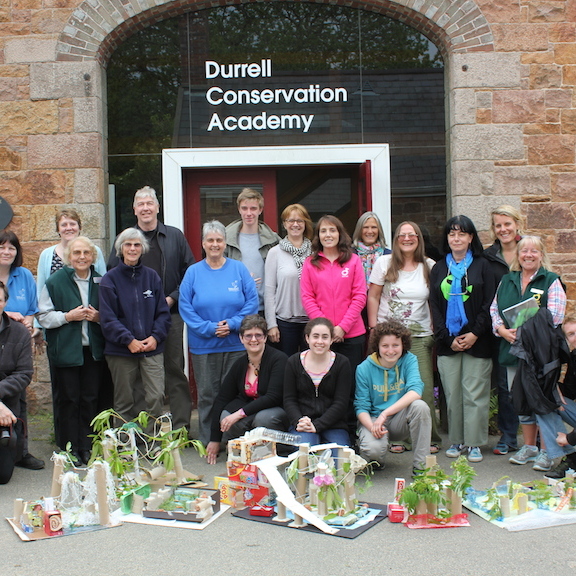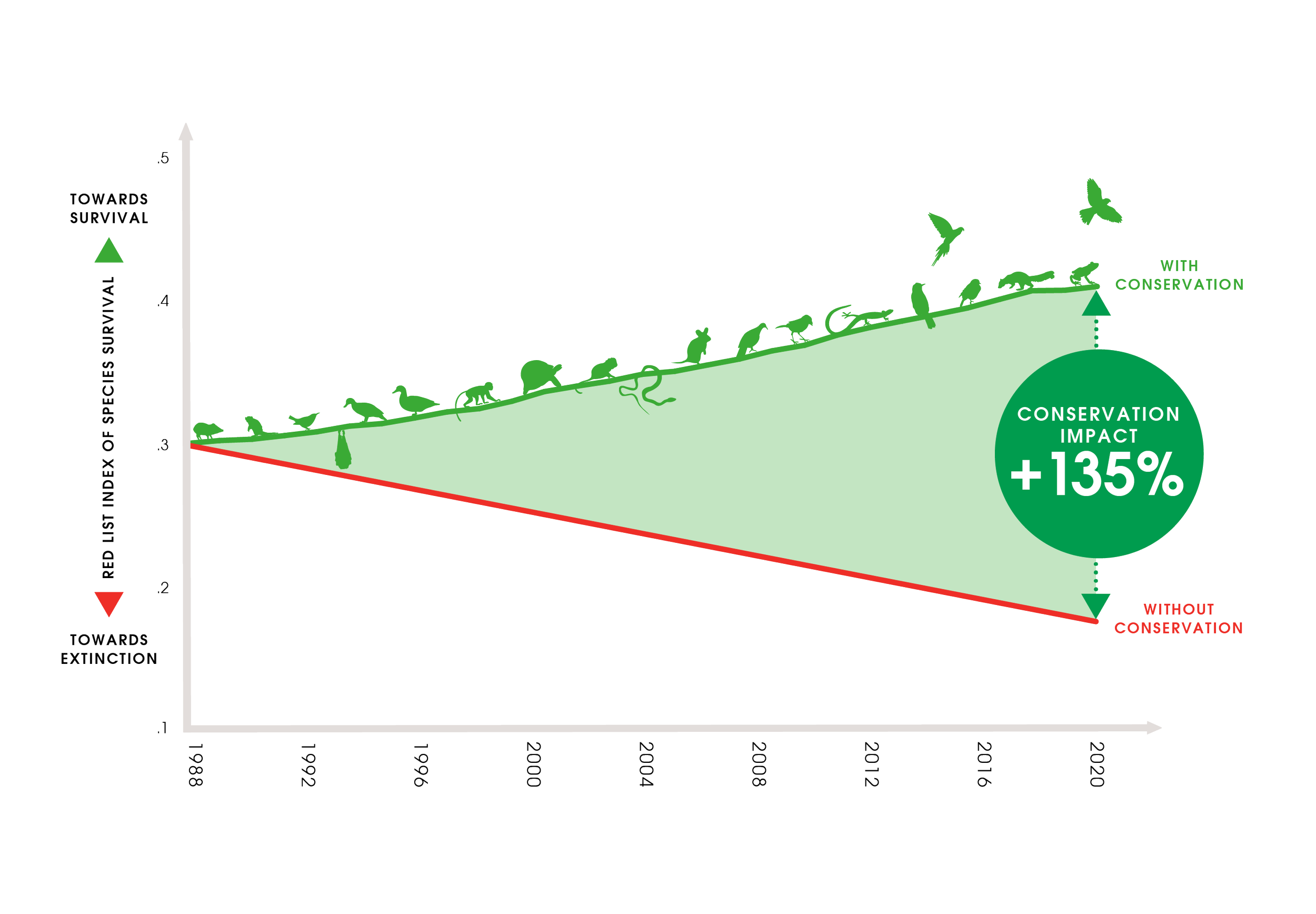Below are the main program areas at Durrell supported by American Friends of Durrell since 2014. These programs interact with and reinforce each other on specific projects. This integrated approach leads to dramatic rescues of threatened species and habitats and their restoration.
Field Programs
Rescue some of the most threatened species in the most threatened places in the world.
Focus on ten sites to restore the unique species and habitats that are under severe pressure from a variety of threats, such as habitat degradation, invasive species and illegal wildlife trade.
Employ 60 dedicated staff on 50 projects in a dozen countries involving field research, species and habitat restoration, in-country breeding and release programs, community conservation and capacity-building and support for the development of policies and plans at government level.
Restore habitats in Brazil, Galapagos, Great Britain, India, Indonesia, Jersey, Madagascar, Mauritius, and St Lucia, as well as focus on the recovery of species in these and several other countries.
Conservation Academy
Instructed more than 6,000 students from two-thirds of the world’s countries in the principles and practices of endangered species recovery since 1980; current annual intake exceeds 450 students.
Draws upon the skills of more than 50 staff from Jersey Zoo and Field Programs to deliver training.
Provides training in university-style facilities adjacent to the Zoo.
Offered more than 20 courses abroad since the early 2000s, tailored to the needs of conservationists from the relevant countries.
Training format ranges from year-long graduate courses to three day workshops to conservation internships.
Jersey Zoo
Established by Gerald Durrell in 1959, Jersey Zoo is the headquarters of Durrell Wildlife Conservation Trust.
Hub of Durrell's activities, situated in 25 acres of beautiful Jersey countryside, employing 100 staff.
Home to 120 species from gorillas to rare frogs, opening a window on Durrell's international work and reconnecting zoo visitors to nature.
Threatened species breed at the Zoo for release to the wild, conservation research and training of Academy students.
Staff teach at the Academy and support Field Programs.
Manages international studbooks for endangered species.
Develops and shares animal husbandry techniques to guide and improve management in breeding centers and in the wild.
Offers structured and informal learning activities through schools programs for more than 5,000 young people per year from Jersey, UK, Europe and USA.
Exposes 200,000 people a year to animals, talks and messaging to help them reconnect with nature, all the better to understand and value the biodiversity and ecosystem functions on which we all depend.
Conservation Science
Ensures all our conservation decisions are based on the best evidence available by conducting scientific research in our Field Programs, at our Zoo and with partners around the world.
Manages the Durrell Index, which allows us to track and report on our performance and impact.
Reviews practices in endangered species recovery programs to produce standard guidance materials.
Leads the IUCN Species Survival Commission’s Small Mammal Specialist Group, which assesses the status of more than half the world’s mammal species and promotes the research and actions they require.
Offers supervision to graduate students pursuing Master and Doctoral degrees.
Operations
Require 20% of Durrell's income, the other 80% being spent on the conservation mission and related activities
Include administrative staff and stationery costs, electricity and insurance charges, professional fees and maintenance of buildings and grounds.
Contributions to operations are indeed unglamorous, but they are meaningful and most deeply appreciated!






